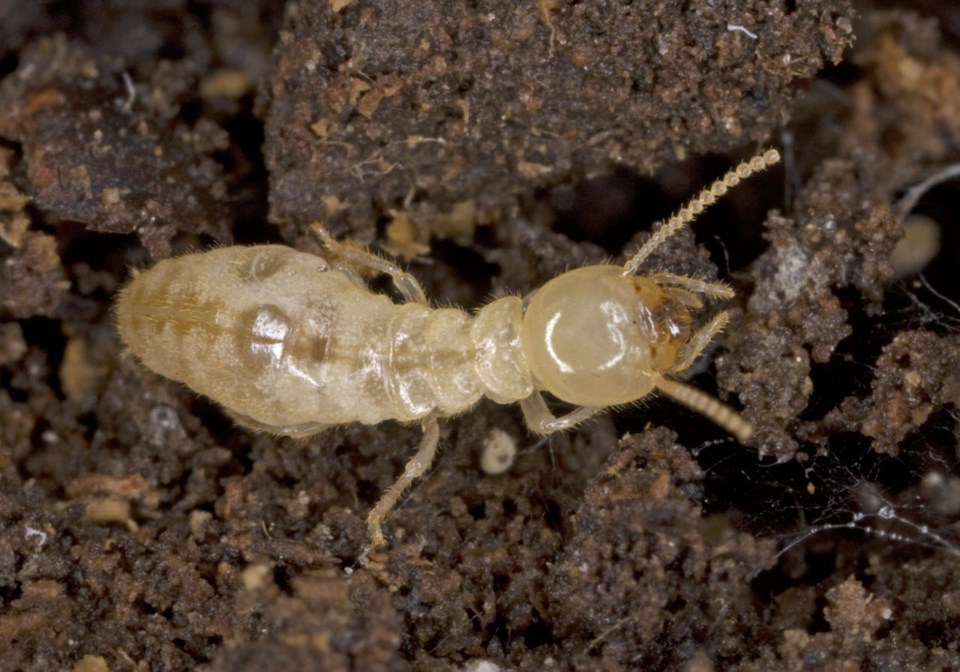CENTRE WELLINGTON – The Township of Centre Wellington council has finally decided on what to do about the community’s pesky termite problem.
At Monday’s virtual meeting, council approved township staff’s recommendation of using a nematodes treatment and to prepare a request-for-proposal for any vendors willing to provide this kind of treatment in the spring and fall.
Nematode treatment is a natural pest control treatment that uses microscopic, threadlike roundworms. These worms are added into water and poured into the opening of the termite nests. As the water washes onto the termites, they become infected with nematodes as it releases a symbiotic gut bacterium. The bacterium poisons the blood of the pest, quickly causing it to die.
In 2020, Timothy Myles, entomologist and termite expert, surveyed areas in Elora and Fergus that were previously known to have termite activity.
Definitive activity was found at 150 homes but Myles’ eradication method involves a block-wide approach.
This means treating properties that are adjacent or between ones with confirmed activity and the ones surrounding these as well.
As such, the termite research services delineated “red zones” and “blue zones” in Fergus and Elora. The red zones represent detected or inferred termite activity, and the blue zones are a perimeter or buffer area around the red zones.
There are a total of 259 properties in the “red zones”, and a further 219 properties in the “blue zones”.
Staff are in the process of preparing a request-for-proposal (RFP) for termite services after consulting with the City of Kitchener that treatment with nematodes is a safe and effective course of treatment at relatively low cost.
The anticipated RFP would require any vendor to include a proposal to provide spring and fall nematode treatments for properties in the red zones.
The cost of nematode treatment would be funded by the township; the estimated cost of nematode treatment is approximately $80,000 per year, according to a staff report.
“If access to property is refused, treatment can expand to adjacent areas in the blue zones. We anticipate that the nematode treatments would continue for up to five years, at which point another survey would be completed to assess the results,” stated in the report.
Council approved $60,000 of funding in the 2021 budget for the termite management. In the 2022 budget, an additional $140,000 was added, resulting in $200,000 in total funding available and unspent. The 10-year capital forecast also includes $100,000 per year projected in 2023, 2024 and 2025.
With this available funding, the following is proposed to be 100 per cent funded by the township:
- Nematode treatments
- Termite information services to Township residents
- Spring and fall yard wood waste cleanup and disposal
- Vendor reporting on properties requiring enforcement activity
“We’ll have to monitor the budget, of course, based on the price per treatment we get back from the vendor. We do expect that there will be some people that refuse access to property to carry out the treatments,” said Brett Salmon, managing director of planning and development, during the meeting.
“There were people who refused Dr. Myles to do the survey and access to the property. We’ll look at the 259 properties and see if we have any more room to add other properties to be looked at. Again, we have to keep track of the budget limitations.”
Centre Wellington residents affected can soon expect treatment as soon as the municipality lands on a tender contract.
